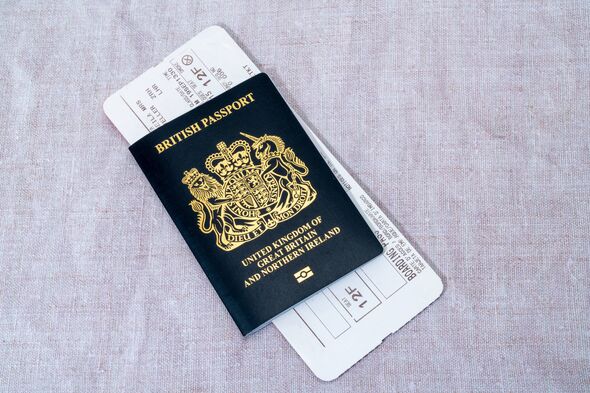

Holidaymakers are being advised to check their passports are valid for travel to prevent potential delays or being denied boarding at the airport. Travel insurance experts at Tiger.co.uk have listed seven crucial passport checks that Brits planning a holiday this summer should undertake.
Passport regulations for British travellers have evolved in recent years, with more factors to consider ensuring a passport remains valid, especially since the UK's departure from the European Union. When travelling to Europe, Brits must ensure their passport was issued less than 10 years before the date of entry, and that it's valid for at least three months after the planned date of departure from the EU. This is vital to remember because previously, UK passports could be issued with up to ten years and nine months' validity.

EU rules now only recognise the ten-year limit from the issue date, reports MirrorOnline.
While UK travellers don't require a visa for a short stay of up to 90 days in Europe, those planning longer trips need to verify the entry requirements for the country they're visiting and secure an appropriate travel permit.
Frequent travellers collecting stamps in their passports also need to ensure they have at least two blank passport pages remaining, otherwise the document could be deemed invalid.
The experts also encourage travellers to ensure their passports are in good physical condition, as damage to the cover, pages or the chip, could result in delays or even refusal at the border.
Parents jetting off with their little ones should take heed that a child's passport only has a five-year validity period.

Ian Wilson, a travel insurance guru and the Managing Director at Tiger.co.uk, warned: "We urge holidaymakers to carry out essential passport checks now to avoid last-minute hassle and potentially being turned away at the airport.
"Post-Brexit travel changes are still confusing for many of us, so it's important for Brits to familiarise themselves with the validity requirements before jetting off to Europe.
"Travellers also need to ensure their passports are in good physical condition, as things like damage from water or ink, rips in pages and laminate peeling from the personal details page can mean that your passport may not be accepted as a valid travel document.
"If you're denied access to your flight for issues such as an invalid passport, your travel insurance is unlikely to protect you. That's why it's so important to double-check these things well in advance of your departure date."
With Brits now receiving stamps each time they traverse the EU, frequent travellers and those who travel for work may find themselves running out of blank pages in their passports. It's crucial to have at least two blank passport pages when travelling, as a lack thereof could render the document invalid.
For those who travel extensively, opting for a jumbo passport with 54 pages, as opposed to the standard 34, might be a wise choice.
Many countries stipulate that passports must be valid for at least six months beyond the arrival date. In Europe, passports should be valid for a minimum of three months beyond the departure date and must have been issued within the last ten years.
This is a key detail to bear in mind, as previously, British passports could be valid for 10 years and nine months, but under new EU rules, they're only valid for ten years from the issue date.
If your passport has suffered water damage, it's likely it won't be accepted as a valid travel document. While minor exposure to water, such as slightly crinkled page edges, shouldn't pose a problem, more severe damage like smudged ink or discolouration could result in delays or refusals at the border.
Should any of your passport pages be torn or missing, your passport will be deemed damaged and will likely not be accepted at the border, particularly if the personal details page or any visa stamps are affected.
If the laminate over the personal details page is lifting or peeling, it could raise suspicions of tampering. This is a common reason for passports being flagged or rejected so even if all the information is readable, it's best to get your passport replaced to prevent any issues.
Holidaymakers need to familiarise themselves with the entry requirements of the country they're travelling to, especially if it's a non-European destination, and acquire a travel visa if needed. When travelling to Europe, you don't need a visa if you're going for a shorter trip of up to 90 days.
A child's passport is only valid for five years and often expire before parents realise. Parents should check the expiry dates early and renew them in good time to avoid delays or travel disruption.